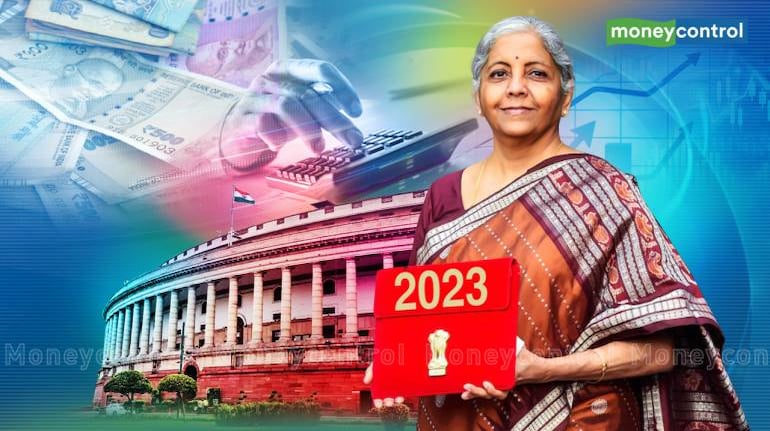Budget 2023 Expectations Live Updates: With just a day to go for the Budget Session, experts feel Finance Minister Nirmala Sitharaman will try to keep her pace of spending to boost growth while leaning on asset sales and shunning subsidies to shrink the deficit.
Here's what to expect from the Budget 2023
- There is buzz that the FM Nirmala Sitharaman may hike the limit for the
highest tax slab from Rs 10 lakh to Rs 20 lakh and reducing the highest tax rate from 30 percent to 25 percent.
- Salaried may also see a hike in deduction available under section 80C to Rs 2-Rs 2.5 lakh. A hike in standard deduction from Rs 50,000 to Rs 1 lakh is also expected.
- LTCG on listed shares or equity-oriented mutual fund schemes may be given exemption from Capital Gains Tax if the equity shares / MF Units are held for at least 3 years post tweaks to section 112A.
- A possible increase in tax exemption limit of Rs 1 lakh to Rs 3 lakh for long-term capital gains is also seen.
- The FM is most likely to address issues of jobs and look at supporting poor and middle class, but she will stay away from spending way beyond the country’s means as the government seeks to shore up investor sentiment.
- Support for consumption and a strong focus on manufacturing with an emphasis on SMEs could be top theme.
- FM Sitharaman is expected to increase the capital expenditure by 12.5 percent to $544 billion in the new financial year beginning April. The fiscal gap is seen narrowing to 5.9 percent of GDP, from 6.4 percent this fiscal. The government is expected to finance it partly through record gross borrowing of 15.8 trillion rupees, or 11 percent higher than the current year.
- PLI is expected continue and the Centre may also tweak duty to encourage domestic manufacturing.
- Budget 2023 will probably see India target asset sales of about Rs 500 billion.
- Centre may likely give its flagship household scheme -- Pradhan Mantri Awas Yojana - a Rs 40,000 crore boost to improve housing among weaker sections.




















